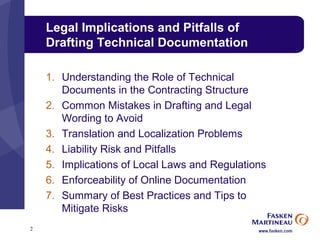
Efficient Organization of Legal Documents
Proper legal documentation is the backbone of a successful legal practice. Organizing documents efficiently ensures that essential information is readily accessible. Utilize folders, naming conventions, and categorization to streamline the storage and retrieval process, contributing to increased productivity.
Clarity and Precision in Writing
Clear and precise language is paramount in legal documentation. Ambiguities or vague language can lead to misunderstandings and potential legal disputes. Always strive for clarity in drafting legal documents, providing a solid foundation for effective communication within the legal framework.
Compliance with Legal Standards
Adhering to legal standards and requirements is a fundamental best practice. Stay informed about the latest updates in legal regulations and ensure that all documentation complies with the applicable laws. This not only mitigates legal risks but also upholds the integrity of the legal process.
Revision and Proofreading
Thoroughly revising and proofreading legal documents is a crucial step in maintaining accuracy. Typos or errors can have significant consequences, and meticulous review helps catch and rectify such issues. Establish a systematic review process to enhance the overall quality of legal documentation.
Document Security and Confidentiality
Safeguarding sensitive information is a non-negotiable aspect of legal documentation. Implement robust security measures, both physical and digital, to protect confidential client information. Adhering to ethical standards regarding confidentiality is not only a best practice but also a legal and professional obligation.
Collaboration and Version Control
In collaborative legal environments, effective version control is essential. Implement systems that track changes and maintain a clear record of document revisions. This ensures that all team members are working with the latest and most accurate versions, minimizing the risk of errors.
Utilizing Technology for Efficiency
Embrace technological tools to enhance the efficiency of legal documentation. Document management systems, electronic signatures, and cloud-based storage solutions can streamline processes, reduce paperwork, and facilitate better collaboration among legal professionals.
Client Communication and Explanation
Transparent communication with clients is key to successful legal representation. Clearly explain the contents of legal documents to clients, ensuring they understand the implications and are comfortable with the terms. This fosters trust and helps build strong attorney-client relationships.
Continuous Training and Education
The legal landscape is dynamic, with evolving standards and practices. Engage in continuous training and education to stay abreast of changes in legal documentation best practices. This commitment to professional development ensures that legal professionals are well-equipped to navigate complexities in document drafting.
Legal Documentation Best Practices Tips
For comprehensive insights into legal documentation best practices and valuable tips, visit HighPointFamilyLaw.com. Explore resources that can further enhance your understanding of effective legal document creation, ensuring your practice adheres to the highest standards.
In conclusion, adopting best practices in legal documentation is essential for a successful and ethical legal practice. From organization and clarity to security and ongoing education, these practices contribute to the overall effectiveness of legal professionals in serving their clients and upholding the integrity of the legal system.








